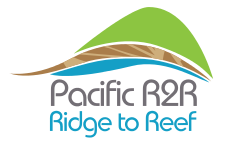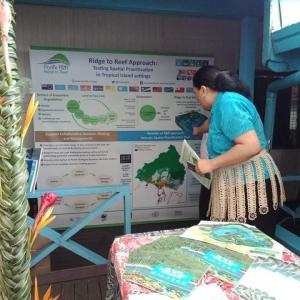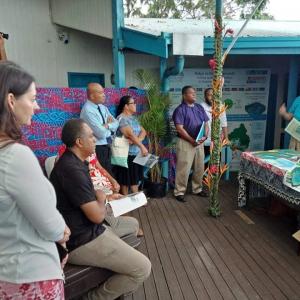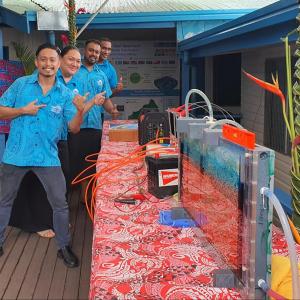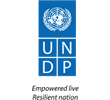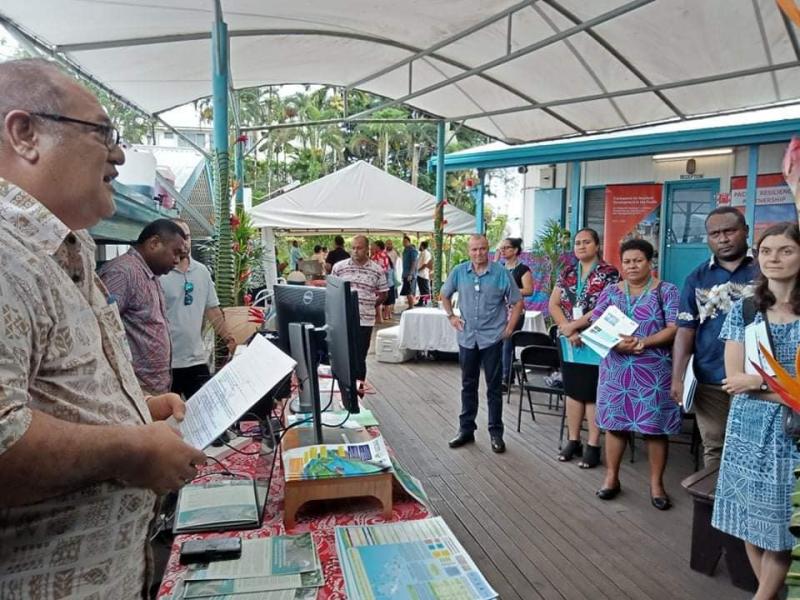
Pacific R2R Programme join SPC Donor and Partner Engagement Forum
The Pacific Islands region is 2% land and 98% water, characterised by a close inter-connection between land, water and coastal systems. These island nations are challenged by long distances to markets, narrow-based economies with high vulnerability to external shocks affecting economic growth, degree of economic and social volatility. This is why planning and management of water and sanitation, pollution control, sustainable land use and forestry practices, balancing sustainable livelihoods and conservation, climate variability and change must consider the Ridge to Reef whole-of-island governance and management approach for sustainable development.
On 27 November, the Pacific R2R Programme joined the Pacific Community (SPC) Geoscience Energy and Maritime Division Donor and Partner Showcase achievements for 2020 for over 40 diplomats and partners.
At the Pacific R2R station, guests heard that the total population of the Pacific Islands is forecast to grow from 11 million to 17.7 million or more than 60 per cent by 2050. Population growth will, among other issues, create pressures on access to resources giving way to land and maritime transboundary disputes.
With growing population numbers, ecosystems are threatened by urbanization, logging and commercial agriculture. To understand the interconnectivity of resources, the SPC Pacific R2R Programme developed a Spatial Prioritization Model (SPM) to support identification of priority areas for terrestrial management action to mitigate downstream impacts.
The R2R Science-to-Policy Approach improves our knowledge base on the cause and effect relationship of R2R resource interconnectivity for the prioritization of local conservation actions for effective and sustainable policy, planning and management of resources.
The Pacific R2R Programme tested the SPM in a tropical island setting – in Vanuatu using InVEST sediment model, a plume model and predictive coral reef models. The benefits of the R2R approach, included:
- Over 1330ha restored native forest
- Up to 75ha of restored marine habitat
- Decrease in sediments by 210 ton per year
- Up to 8.3 tons fish biomas restored/protected
Fostering dialogue between decisionmakers in an iterative decision-making process, the SPM will enable small island developing states, also known as large ocean states to:
- Prioritize conservation areas at the national scale that can benefit both terrestrial and marine environments
- Support local decision making by testing policy actions and estimating potential outcomes prior to implementation
- Harmonize existing national governance frameworks and effectively align to regional and global conventions and agreements for effective cohesion, cooperation, coordination, planning and action.
The Pacific Ridge to Reef (R2R) Programme is a multi -country, multi -GEF agency programmatic initiative guiding the coordinated investment of USD 90 million in GEF grant funding across multiple focal areas of biodiversity conservation, land degradation, climate change adaptation and mitigation, sustainable land management, sustainable forest management, and international waters in Pacific Small Island Developing States (SIDS).
Operating across 14 Pacific Island countries, the programme aims to deliver tangible and quantifiable local and global environmental benefits by focusing on cross-cutting approaches to water, land and coastal management with linkages across GEF focal areas including: biodiversity, land degradation, international waters, sustainable forest management, climate mitigation and adaptation and capacity development.
The programme is implemented by United Nations Development Programme (UNDP), the United Nations Food & Agriculture Organization (FAO) & the United Nations Environment Programme (UNEP).
Executed regionally by the Pacific Community (SPC) through the Pacific Regional Ridge to Reef International Waters project (Pacific Regional R2R IW), the R2R programme is supported by the Regional Programme Coordination Unit (RPCU) in areas of science-based planning, human capital development, policy and strategic planning, results-based management, and knowledge sharing.
Pacific R2R participating countries include: Cook Islands, Federated States of Micronesia, Fiji, Kiribati, Nauru, Niue, Palau, Papua New Guinea, Republic of the Marshal Islands, Samoa, Solomon Islands, Tonga, Tuvalu and Vanuatu.
